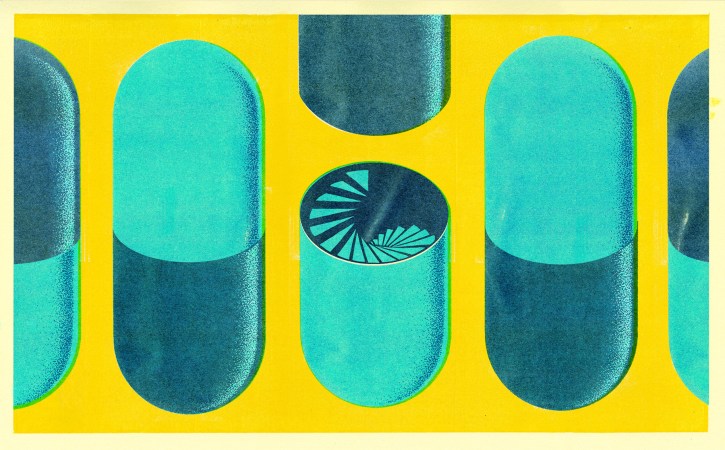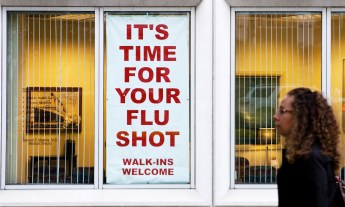
Much of the data from clinical trials is withheld from the public, says scientist and advocate Síle Lane. This missing information is costing money, time and even people’s lives.
Here’s a fact that may surprise you: around half of the clinical trials that were done on the medicines we use today have never published their results.
The first time I heard this, it shocked me. And frankly, it still does. I, like most people, assumed any medicines that were officially approved, prescribed and sold are safe and effective. But I learned this disturbing fact through my work as a scientist and advocate for medical research (TEDxMadrid Talk: The hidden side of clinical trials). The data is vitally important — besides being used by regulators to decide if a medication should be marketed, it’s also relied upon by physicians to decide which drug to give to patients and by researchers to assess if further experiments need to be done.
With results from just half of the trials, decision makers lack the information they need to make wise choices. In one infamous example, a heart drug called lorcainide was tested in clinical trials in the US and UK in the 1980s. Results showed that patients given the medication were far more likely to die during the trial than those not given it — but those results were published more than ten years after it went on sale. In that period, it’s estimated that more than 100,000 people died from taking the failed drug. In another example, a UK regulator recommended ten years ago to the government that it buy a supply of Tamiflu, an anti-influenza medication. The recommendation was based, of course, on the results of clinical trials. The government went ahead and purchased a stockpile — not once, but twice — due to fears of a flu pandemic. It spent a total of 473 million pounds. However, some researchers realized only a small percentage of the trial results had actually been released. After battling to see the missing data, Cochrane — an independent research network — received access to the full studies and analyzed them. In 2014, its scientists released a report that concluded Tamiflu was not effective. Half a billion pounds of government funds were wasted.
But the issue is about more than money — for me, it’s about people. Remember, clinical trials never happen in a vacuum; people must volunteer to be part of them. In large trials, thousands might sign up. They are mostly patients with diseases or medical conditions who enlist either because it could help them now or because it could benefit others in the future. There is always a risk in testing a new compound, so participants are taking a gamble — the trial medication might not be as good as the one they’d otherwise be given, or they could be assigned to the control group and receive a placebo. In addition, participants in trials need to be frequently monitored, so they sacrifice hours of time to go to hospital and doctors’ appointments. Finally, volunteers sign up with the implicit belief that if useful information is uncovered in the trial about their condition or the medicine, it will be shared with them and others. Any withheld results represent a betrayal of their trust. And with thousands of clinical trials having never published their outcomes, it means millions of volunteers have been betrayed.
You may wonder: how do we know how many clinical trials haven’t published results if the information is missing? It’s challenging. Since there is no list of every single trial that’s occurred, there isn’t anything to check against. But researchers have tried to assess the situation by looking at clinical trial registers. These are online databases set up by governments, the World Health Organization (WHO) and universities where trial sponsors are encouraged to post details of current and upcoming trials so clinicians, academics and patients can learn about them and participate. Researchers then follow up on the trials listed and see if results are published in scientific journals, conference reports or talks, data depositories or other forums.
But it’s not easy to find the trial results. There are hundreds of different places to look, and when researchers do find data, it can be difficult to make sure it belongs to the trial they want. Some investigators have decided to focus on subsets of trials. For example, they may look at all the trials done on a particular drug or condition. Or they narrow their search by zooming in on a year or country. Hundreds of such targeted studies have occurred, each examining a small piece of the clinical trial puzzle, and they’ve consistently backed up the 50 percent figure.
Some researchers are looking at what kinds of results get published and which ones don’t. Not surprisingly, it appears that more results from trials which show a medicine works are released than from trials that show a medicine doesn’t work. In fact, trials giving a positive result are twice as likely to have published their findings than trials with a negative result. Besides the problem of incomplete information, the information that does get released to us is often biased.
When I tell people about the problem, they all ask the same thing: “Isn’t there a law against this?” The answer: sort of. Since 2007, one US law states that some trials in America must be logged on a register and these trials must report their results within a year of their end. Yet, in 2015, when researchers looked at some of the trials covered by this law, they found only 13 percent reported their results within a year. In other words, a little more than 1 in 10 trial sponsors followed the law, and nearly 9 out of 10 broke it. The law allows the FDA to apply fines of $10,000 per day to sponsors that are late in publishing results, but no sponsor has ever been fined, in part because the statute is confusingly written and it’s difficult to enforce.
There is a legislative ray of hope for people in the EU. A comprehensive law is scheduled to take effect in 2018 that requires all drug trials in the EU to be registered on a public database before they can begin. As well, a summary of their results must be published on the register within a year of the trial’s end; the summary must be suitable for laypeople; additional detailed reports, if produced, must be publicly available; any trials used to support an application for a new trial must have registered and published results; and financial penalties will be imposed on any trial sponsor that does not adhere to these requirements. While the law is admirably clear and specific, it remains to be seen if it will be followed and if regulators will enforce it.
The reality is, it’s impossible for a law or set of guidelines to be drafted that applies to all the entities worldwide that carry out clinical trials. Drug companies are far from the only organizations running experiments — they’re also conducted by universities, charities and governments. And they occur in so many different countries, which have their own practices and standards. Unfortunately, there is only one thing that seems to unite the many groups running clinical trials: a culture of secrecy.
But as awareness is being raised, change is slowly happening. I’m part of an international initiative called AllTrials, a movement of patients, researchers and nonprofits that was cofounded by physician and science journalist Ben Goldacre (TED Talk: What doctors don’t know about the medicines they prescribe); it calls on policymakers and sponsors to publish new trial results and to release past trial data before it’s lost or destroyed. After lobbying efforts by our group and other people and organizations, the World Health Organization issued a public statement in 2015 saying that researchers running trials had the obligation to register them and publish results. In one of the biggest victories yet, the UN released a report in 2016 stating that clinical trials should be registered and their results published regardless of whether they are positive, negative, neutral or inconclusive. The UN also called on governments to pass legislation to make this happen. These days, many people still don’t know about the dangerous gaps in our knowledge about clinical trials. But if we can all get informed and concerned, together we can work towards the day when the hidden information will finally be brought out into the light.












